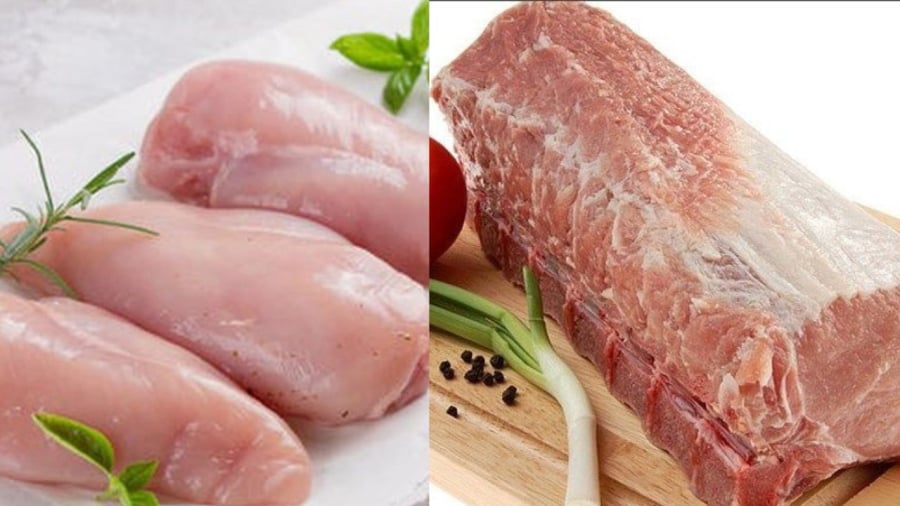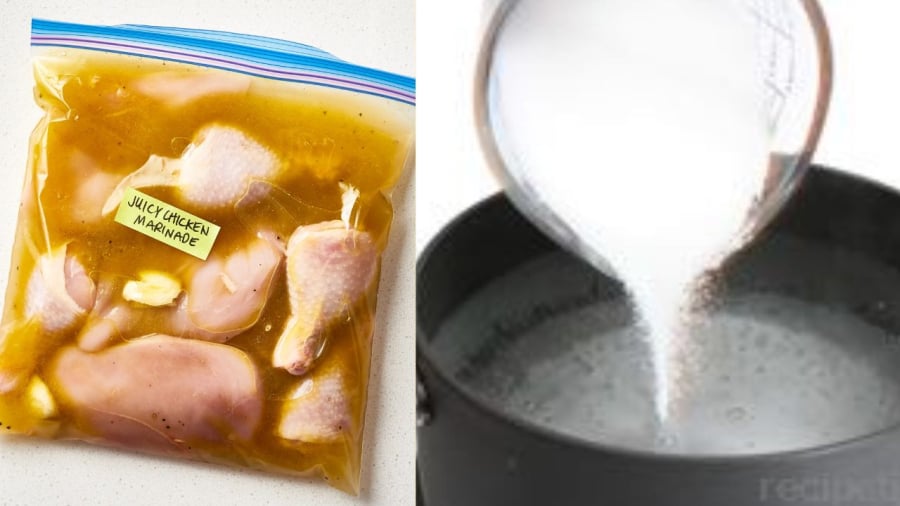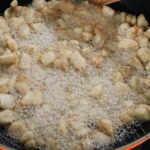“Why Chicken Breasts and Pork Tenderloin Tend to Dry Out and How to Prevent It”
Chicken breasts and pork tenderloin are popular choices for health-conscious individuals as they are lean cuts of meat with less fat than other parts. These meats are excellent sources of protein, but they can easily become dry and tough when cooked. So, why does this happen, and how can we prevent it?
The Science Behind Dry Meat:
The connective tissue in pork tenderloin and chicken breasts is dense, and the protein fibers are tougher. This is especially true for the leaner parts, such as the tenderloin, breast, and thigh. When subjected to heat, the molecules in the meat accelerate, collide, and undergo chemical reactions that alter their structure and flavor. Protein, in particular, contracts and squeezes out moisture, resulting in dry, chewy meat.

Chicken Breasts and Pork Tenderloin: Nutritious but Prone to Dryness
Tips for Moist and Tender Meat:
Professional chefs in Western kitchens, where these cuts of meat are favored, often use a brine solution of salt and sugar. Salt helps break down protein chains, forming a thick gel that absorbs and retains moisture, resulting in juicier meat. It also inhibits bacterial growth by disrupting enzymes and damaging bacterial DNA. Additionally, salt enhances flavor by stimulating our taste buds.
The addition of sugar further improves moisture retention due to the principle of “salt separates, sugar retains.” It also enhances the umami or savory taste, resulting in a softer, sweeter dish.

Brine Solution for Tender Meat
Here are some tips to apply this technique at home:
– Brine your chicken breasts or pork tenderloin using a 5% brine solution. For every 100ml of water, add 5g of salt and 5g of sugar. Adjust the amount of water according to the size of the meat, ensuring it is fully submerged. Too much water can increase osmotic pressure, causing moisture loss, while too little salt will be ineffective.
– Brine for a minimum of 30 minutes and a maximum of 12 hours. For longer brining, cover the container with plastic wrap and store it in the refrigerator to prevent bacterial growth. For thicker cuts of meat, use a sharp object to puncture the surface to allow for faster and easier absorption of the brine.
– After brining, pat the meat dry and season it with your choice of spices. If you plan to freeze the meat, blot excess moisture, wrap it tightly, and store it in the freezer. Thaw it slowly in the refrigerator for best results.
– During cooking, use moderate heat. These meats can be boiled, steamed, fried, or stir-fried. For boiling and steaming, keep the heat low to allow for gradual cooking and moisture retention. This also prevents the breakdown of proteins and amino acids, resulting in a sweeter, more tender dish.
– For fried dishes, coat the meat with a layer of cornstarch or another type of flour to create a moist and tender interior.
– When grilling, start with a low heat setting to ensure even cooking and moisture retention. Only increase the heat towards the end to achieve the Maillard reaction, which gives a beautiful brown color. Remember to flip the meat regularly and brush it with oil for a softer, glossier finish.
How to Fry Bacon Without the Splatter: It’s Easier Than You Think!
Introducing a revolutionary technique that will transform the way you view pork fat frying forever. No longer will you dread the splattering mess that often accompanies this task. With our simple trick, you can achieve instant success and master the art of frying pork fat like a pro. It’s time to embrace a cleaner, safer, and more efficient method that will leave you wondering why you didn’t discover it sooner.





































